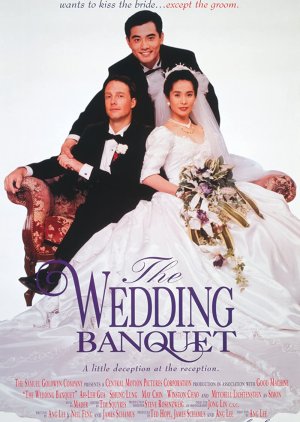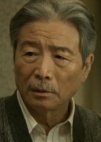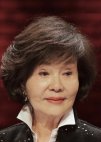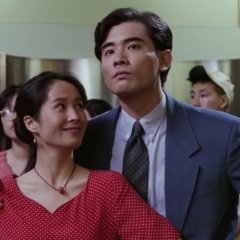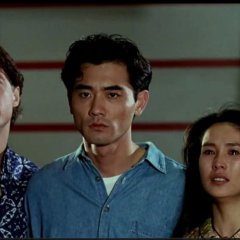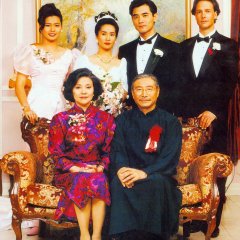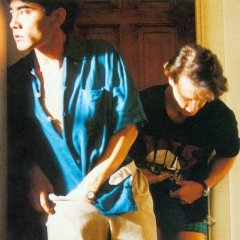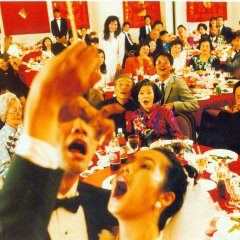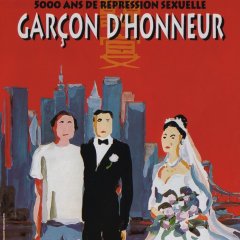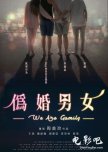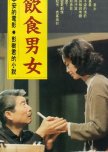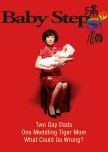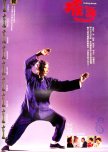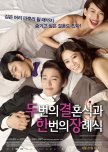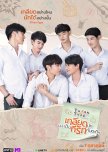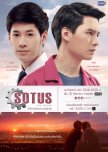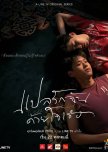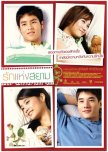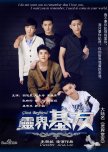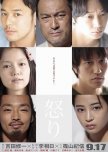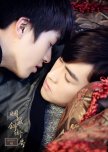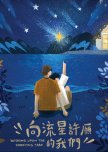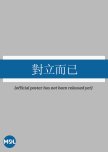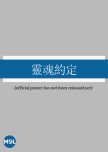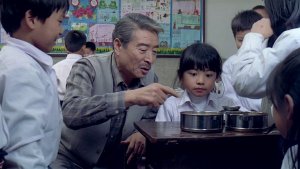 Weekend Recommendations: Father Knows Best
Weekend Recommendations: Father Knows Best - Français
- English
- magyar / magyar nyelv
- dansk
Où regarder The Wedding Banquet
Gratuit•e (sub)
Distribution et équipes
- Winston Chao Rôle principal
- Mitchell LichtensteinSimonRôle principal
- May ChinWei WeiRôle principal
- Sihung LungMr. GaoRôle Secondaire
- Gui Ya LeiMrs. GaoRôle Secondaire
- Lee Mason"Baby"Rôle Secondaire
Critiques

Cette critique peut contenir des spoilers
What we do for love
The Wedding Banquet showed what people will do for love--love for lovers, love for tradition, and love for family. The movie's title comes from a raucous and drunken wedding banquet that seemed to signal the beginning of a couple's life together. Problem was, the couple being celebrated were a sham and the real love was between a gay couple trapped in a show for one man's traditional parents from Taiwan.Wai Tung and Simon had been lovers living together happily for five years in America. Wai Tung lived a busy, upwardly mobile lifestyle by all appearances assimilated into American life. Meanwhile back in Taiwan, his parents were ready for him to be married and producing grandchildren unaware he was gay. So determined were they that they set him up in an expensive matchmaking service. Simon decided Wai Tung should marry Wai's tenant, Wei Wei, a broke artist without a green card, to help her out and get Wai's parents off his back. The ruse worked well enough that Wai Tung's parents decided to come to America for the wedding. Cue the merry marriage high-jinks and misunderstandings.
The Wedding Banquet could have veered off into slapstick comedy or morose melodrama but Ang Lee managed to walk a fine line as Wai Tung confronted his life with Simon and the expectations of his family. The comedy arose more out of character and the situations these people found themselves in rather than random sight gags much to my relief. Wai Tung loved Simon and his parents and didn't want to disappoint either. He also felt responsible for Wei Wei who was obviously in love with him. Simon also felt real as he became the odd man out while the farce took place in his home. And Wei Wei ended up facing the emotional consequences for marrying a man who loved another man. Both she and Simon came to love Wai Tung's parents. Throw in the parents with their own complicated emotions and what could have been a trite story turned meaningful and heartfelt.
The actors were all quite capable, with Gua Ah Lei giving a truly complex performance as a mother wanting her son to be happy, preferably within the confines of their traditions. Winston Chao and Mitchell Lichtenstein brought their characters to life as they bickered, loved, and fought to be together.
1993 was a different time than today. In most states gay couples were not readily accepted and marriage was out of the question. New York, for the most part, was more open-minded. This movie, without resorting to being preachy or patronizing, showed a loving gay couple working through their problems, albeit with some hilarious and heartbreaking moments. The relationship felt real and consequential. It was also a time when cell phones were as big as WWII walkie-talkies and were used for the sole purpose of a phone and to make the occasional call---minutes were expensive!
Made for only $750,000 Ang Lee poured more heart than money into this film. Even with a few rom-com contrivances, I found myself rooting for all of these people. I desperately wanted them to have their happily-ever-afters. The Wedding Banquet wasn't perfect, but it was perfectly funny and heartwarming and romantic. In the end, everyone learned a little more about love and acceptance even when they didn't come in the package that was expected.
8/4/22
Cet avis était-il utile?

A violent encounter between two cultures, two sexes, two Chinas, two generations.
Wai Tung (Winston Chao) is a Taiwanese-American man who is happily settled in New York with Simon (Mitchell Lichtenstein), his American boyfriend. Already close to 30 years old, Wai-Tung has not yet married, and his Taiwanese parents are impatient with the fact that they want to see him married and have children.But what shines is not the golden and cheerful champagne, but a sad and sordid story. Wai-Tung has not dared to confess his homosexuality because his father has recently recovered from a heart attack, in addition to coming from a conservative family and he fears that they will not accept that he is a gay man.
Wai's parents, unaware of the situation, have found him a girlfriend from Taiwan and gotten him engaged; and they plan to travel to the United States to introduce the girl and celebrate the nuptials. From there, the crazy dizzying entanglement: While Wai must announce that he already has a girlfriend, Simon proposes celebrating a wedding of convenience with his Chinese roommate Wei-Wei (May Chin), a young immigrant who needs a green immigration card. to remain in the United States.
With its Oscar nomination for Best Foreign Language Film, a Golden Globe nomination in the same section, and six nominations for the Independent Spirit Awards, including Best Film, all in 1993, 'Xi yan' ('The Wedding Banquet ') won the Golden Bear at the Berlin Film Festival, shared with the Chinese film '"Woman Sesame Oil Maker'
With a lot of ingenuity and a good dose of humor and drama, the success of the film is guaranteed by the truthfulness of the story and the way in which the creators do not seek melodrama and basic humor, but rather do justice to the characters. .
In this well-conceived, bittersweet, funny and very entertaining film, which never stumbles, it tells us how Simon's strategy, which seemed to be safe, causes even more problems when Mrs. Gao (Gui Ya Lei) and her husband, Mr. Gao (Lung Sihung), Wai-Tung's parents, arrive in New York to celebrate a big wedding with Wei Wei. As a result, all kinds of emotional conflicts and human relationships happen behind the Chinese-style wedding banquet.
Friendly and surprising film of cultural shocks that launched Lee to universal recognition, the multi-award-winning director demonstrates a certain creative maturity as an author. Halfway between comedy and social melodrama, he bases his story on the critical-testimonial subtlety of situations and dialogues, which range from hilarity to touching sentiment, managing to overcome cultural barriers and achieve, in this way, international recognition. . As a curious fact, Lee participates as an extra among the guests at the wedding banquet.
With sequences as successful as the wedding banquet - following Chinese traditions - that titles the film, the humor comes from both the characters and the situations, giving rise to a funny and emotional unusual comedy.
'The Wedding Banquet' offers a sharp study of mentalities and points out the problems of Chinese emigrants in the United States, in search of an identity and that "American dream" that most of the time will not be realized.
With a low budget, so it was filmed with natural light, and dialogues in English and Chinese, the film talks about the confusion of identities, traditional family values and their clash with modern life. Not in vain did the Taiwanese director say in this regard: "It is a violent encounter between two cultures, two sexes, two Chinas, two generations. Also, in some way, a clash between Eastern and Western society."
With this very skillful and entertaining social comedy, turned satire on the middle class with more heart than bite, Lee seems to have the objective of breaking spears in defense of homosexuality, with his dialogues and erotic situations very explicit in this sense.
Hence Lee recognized: "it is an important aspect in this film, because American cinema has traditionally treated homosexuals and also the Chinese badly. I would like them to be respected more. (…) in America it is seen as something comical, but in Taiwan it would be a drama. I wrote it based on my own experience, because it was also an act of rebellion for me not to get married, and in real close situations," referring to the fact that he was inspired to write the story by a couple of his friends.
Due to its emotional charge, with this film, the Taiwanese director, screenwriter and producer continues, as he did in previous films, such as 'Pushing Hands' and 'Eat Drink Man Woman', his exploration of the relationships and conflicts between tradition and modernity. , eastern and western. Lee also deals with repressed and hidden emotions in many of his films, including 'Crouching Tiger, Hidden Dragon,' 'The Ice Storm,' 'Hulk,' and 'Brokeback Mountain.'
Cet avis était-il utile?

